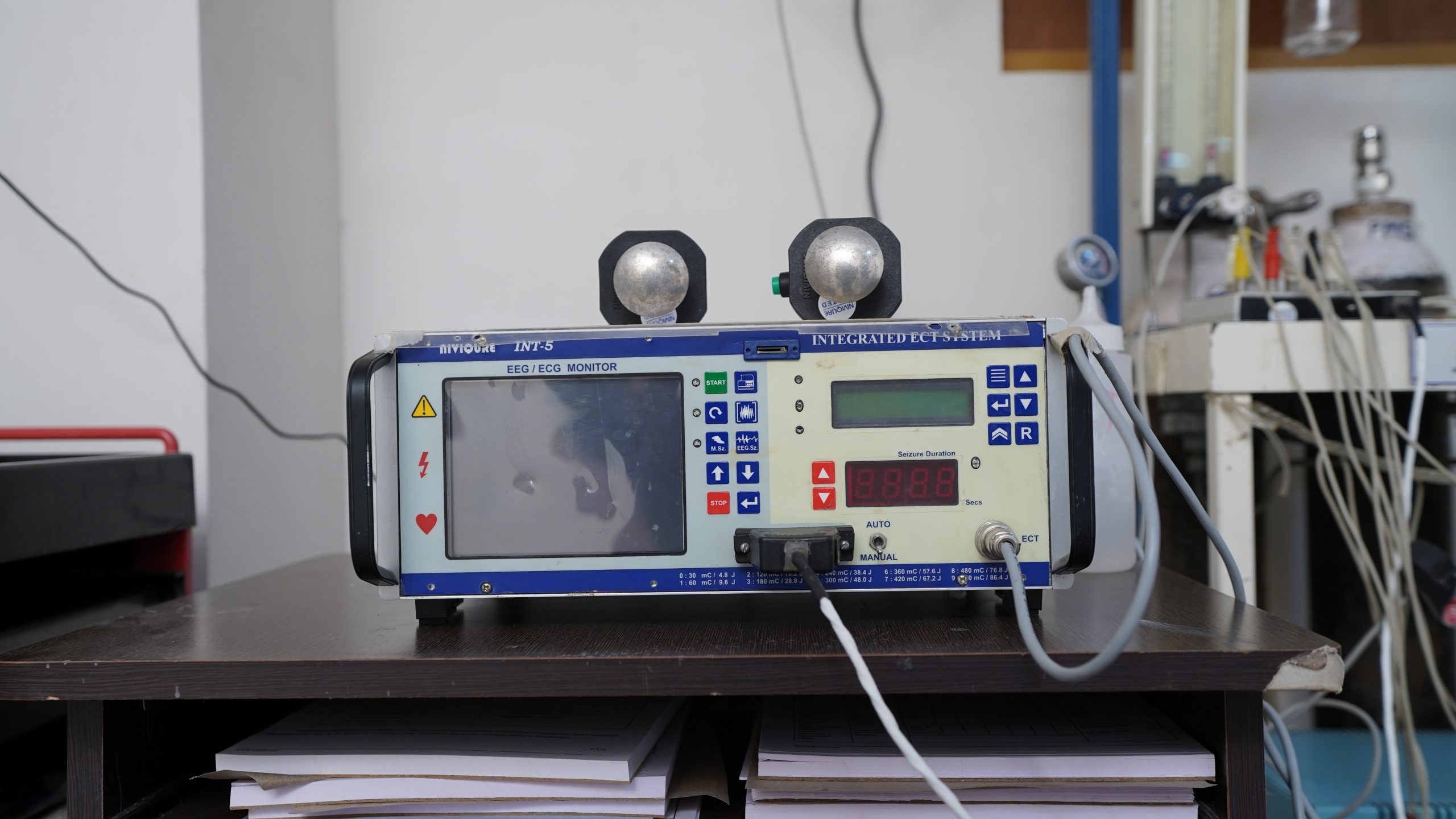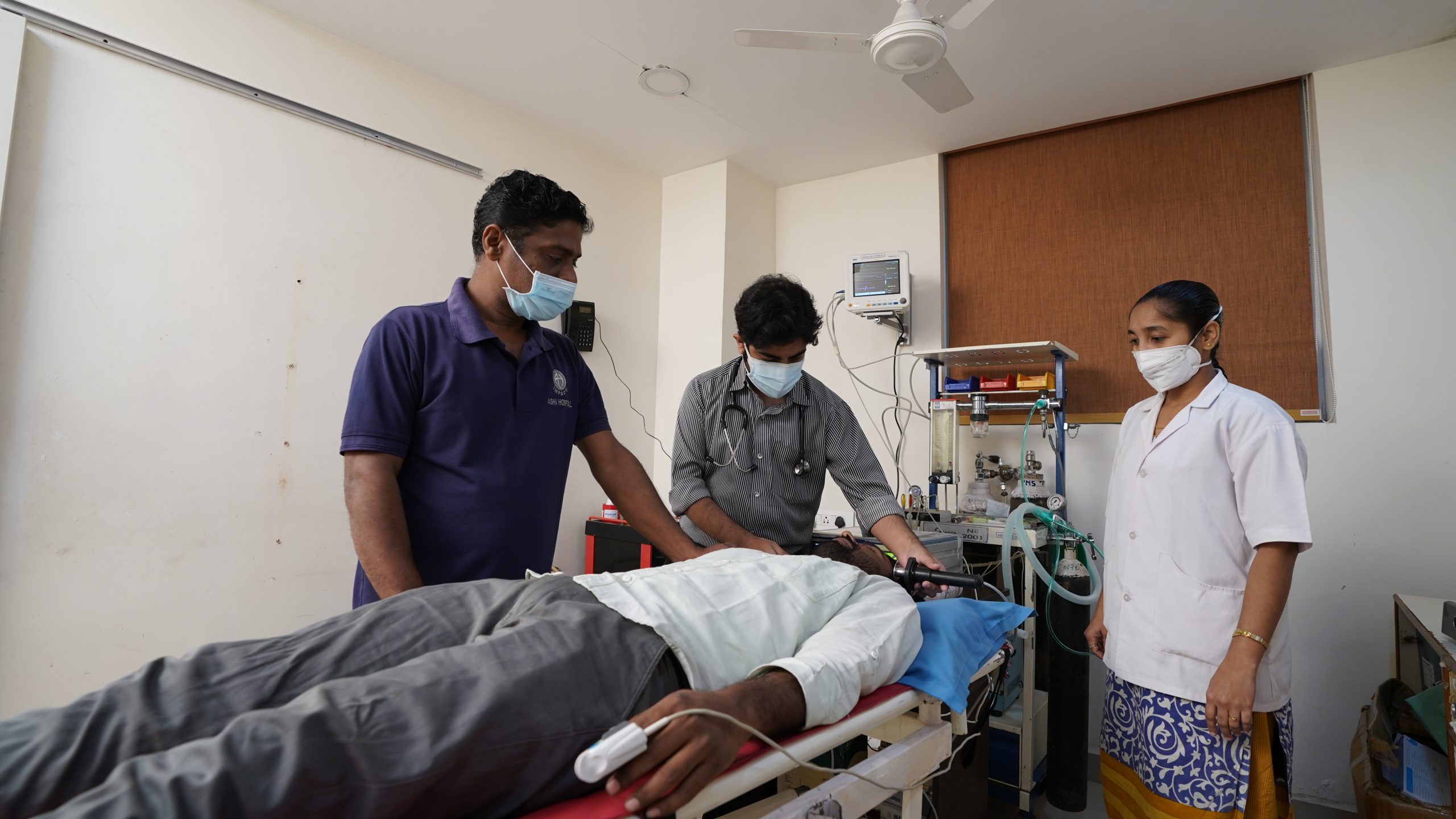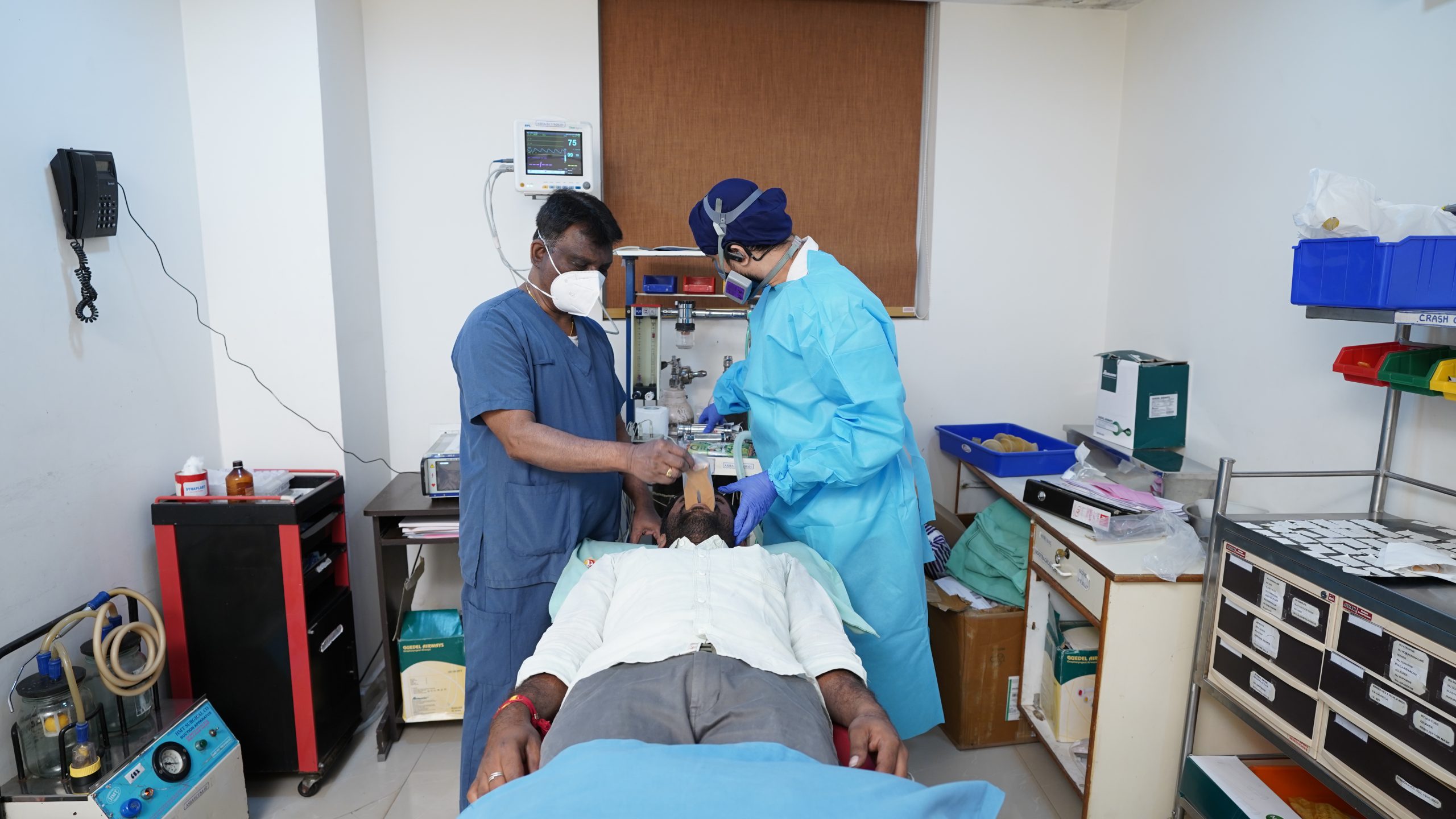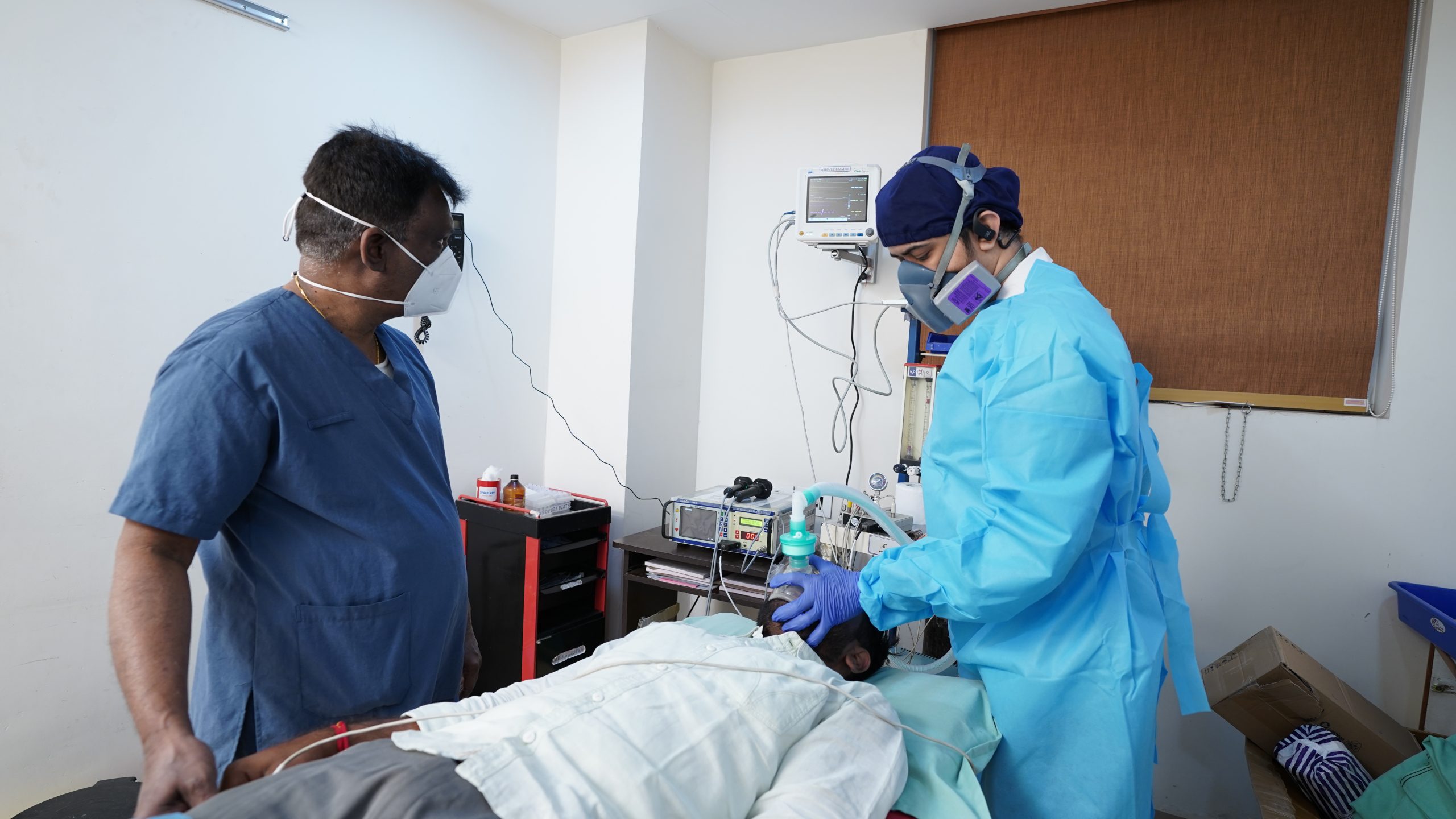ECT
ECT
Electroconvulsive therapy (ECT) is a medical treatment most commonly administered to patients with severe depression, mania, schizophrenia, that has not responded to other treatments. It is nothing like what is portrayed in popular media and movies -The patient does not get violent seizures, does not feel pain during the procedure.
It is life saving when the patient and when there is at a high risk of suicide and when the patient is catatonic – a condition in which a person can become increasingly agitated and unresponsive. A person with catatonia can seriously injure themselves or develop severe dehydration from not eating or drinking.
Following appropriate investigations, Fitness for ECT is obtained from the hospitals physician before ECT. Serum cholinesterase levels are measured before ECT in cases of suspected pseudocholinesterase deficiency. The patient is required to be in a fasting state for 8 hours before ECT.



















A patient typically receives ECT two or three times a week for a total of six to 12 treatments, depending on the severity of symptoms and how quickly the symptoms respond to the treatment. ECT involves a brief electrical stimulation of the brain while the patient is under general anaesthesia with the all the muscles relaxed.
The patient’s brain is stimulated with a brief controlled series of electrical pulses via electrodes are placed on the temples on either side. This causes a seizure within the brain that lasts for approximately a minute. The patient is asleep for the procedure and awakens after 5-10 minutes, much as from minor surgery. It is administered by a team of trained medical professionals that includes a psychiatrist, an anesthesiologist, and a nurse or physician assistant. At Asha Hospital our anaesthetist and clinicians have an experience with mECT for the past 30 yrs, we follow utmost care in following all safety protocols ensuring safety in COVID 19 precautions. We have the state of the art equipment with EEG monitored ECT. The patient is under direct vision of the doctors during ect, during recovery and until the patient is awake.
Safety precautions:
- COVID testing for all patients undergoing ECT
- Blood investigations and ECG
- Physician and anaesthetist consult for fitness to undergo the procedure
- Necessary tests to rule out organic illness,
- Pre ECT and Post ECT monitoring with dedicated areas for the procedure


